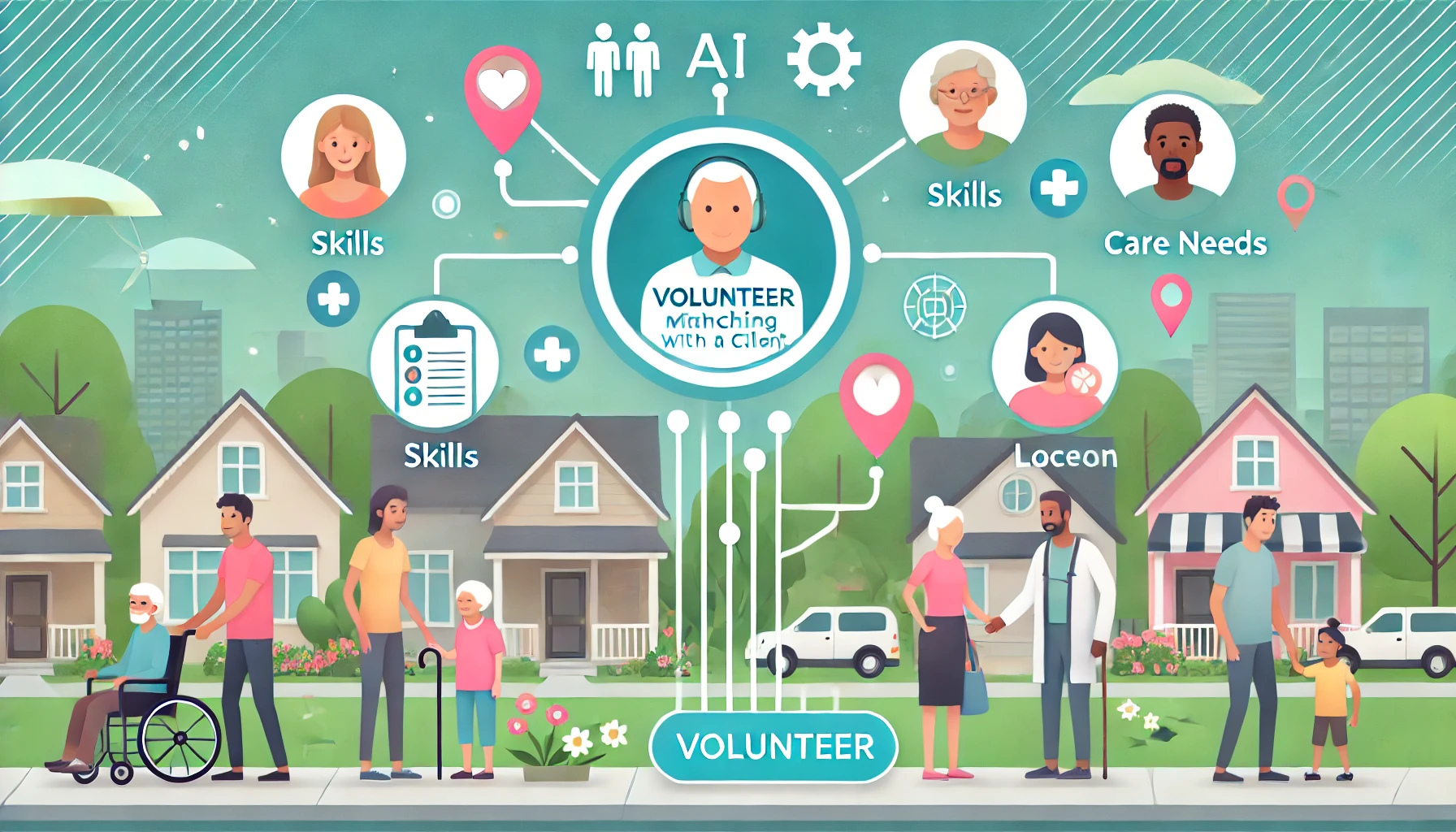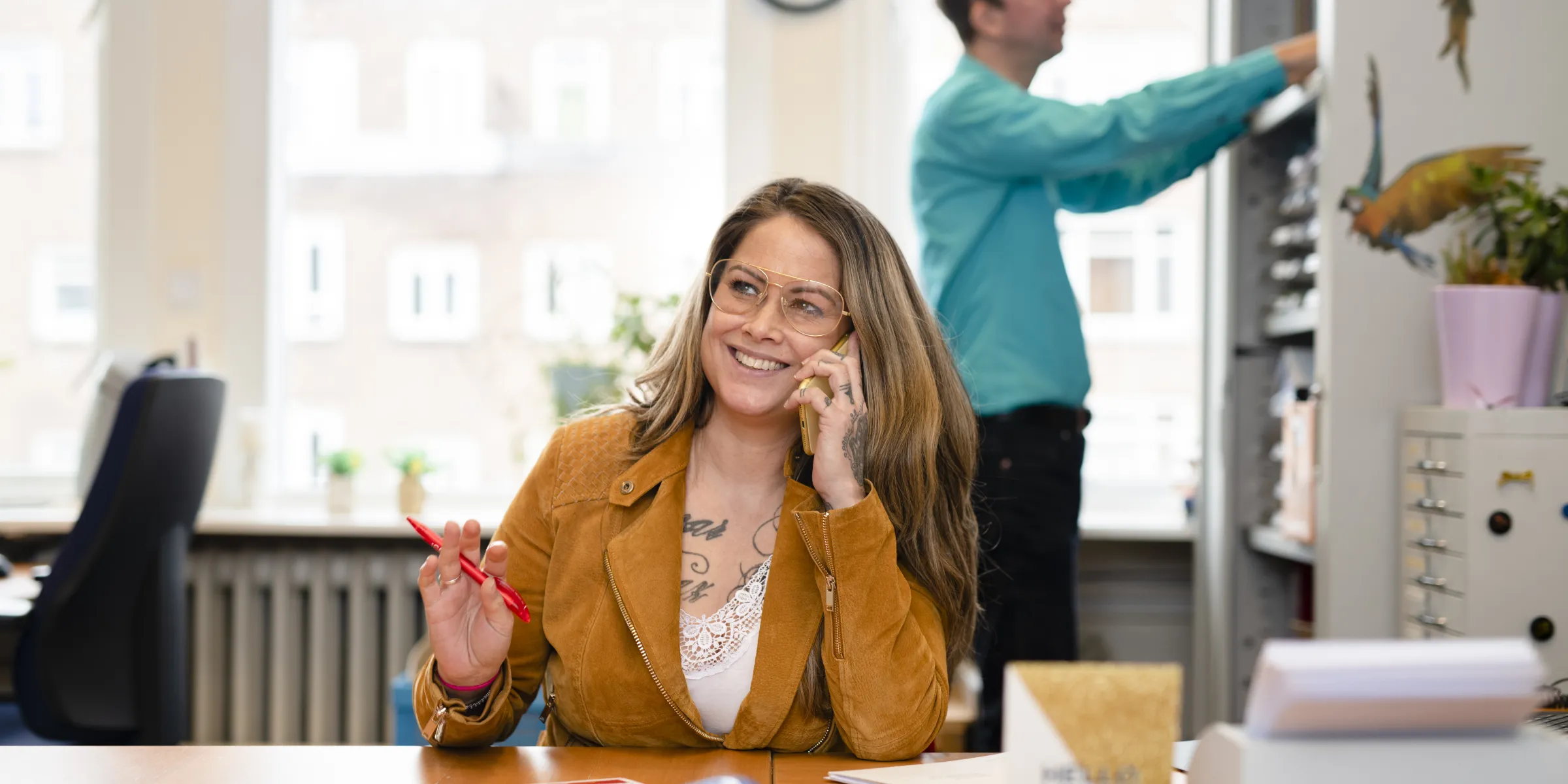26 September 2024
Humanitas Foundation explores AI-matching with volunteers
Humanitas is exploring how AI can help match volunteers with clients based on their skills and care needs. The goal is to improve care quality and increase volunteer engagement.

The Humanitas Foundation in Rotterdam is facing a significant challenge: providing more care with fewer people and a reduced budget. Innovation is key to tackling these issues. Two important pillars in their approach include attracting more volunteers, particularly through collaborations with businesses, and effectively matching volunteers with clients in the community.
To address these challenges, Humanitas has partnered with 8vance to explore AI technology for matching volunteers with clients based on skills and care needs. This technology aims to improve the quality of care and increase volunteer engagement.
Innovative technology for better care
The 8vance technology helps predict which volunteer is best suited for a client’s specific care needs. Ramses van Rijn, Director of People & Organization at Humanitas, explains: “With this approach, we aim to make a match that closely aligns with the client’s care needs. By looking not only at the care request but also at the volunteer’s skills, we can offer the best possible support and enhance the well-being of both parties.”
Effective matching to care requests
The pilot focuses on a wide range of care requests, from help with grocery shopping to support with digital devices. Waling, an expert in AI & HR, adds: “This approach not only helps match volunteers more effectively but also increases their engagement. By gaining a full picture of both the existing and required skills, we can make the optimal match between the volunteer and the care need.”
Location plays a crucial role
In addition to skills and experience, the volunteer’s location is also a key criterion. Deploying volunteers locally strengthens the community and fosters self-reliance, reducing the pressure on professional care and increasing mutual support within neighborhoods. Personal factors such as character and interests are also included in the matching process. Ramses van Rijn elaborates: “We want volunteers to feel connected to the client. This means looking not just at what they can do, but also at what motivates them and the experience they bring.”
Meet-up for interested parties
At the end of the year, Humanitas will organize a meet-up to provide an exclusive insight into the project. This event will dive deeper into how the matching works, its added value for the healthcare sector, and how Humanitas collaborates with businesses to connect reliable volunteers with care needs. This meet-up is especially aimed at companies committed to corporate social responsibility and encouraging their employees to use their expertise in volunteer work. Ramses van Rijn emphasizes: “Collaboration with businesses is crucial for us. We encourage companies to give their employees the space to engage in social responsibility. This is not only valuable for the care sector but also contributes to the personal development of the volunteers themselves.”
With this innovative approach, Humanitas Foundation hopes to make a sustainable contribution to both the quality of care and the engagement of volunteers in Rotterdam.


